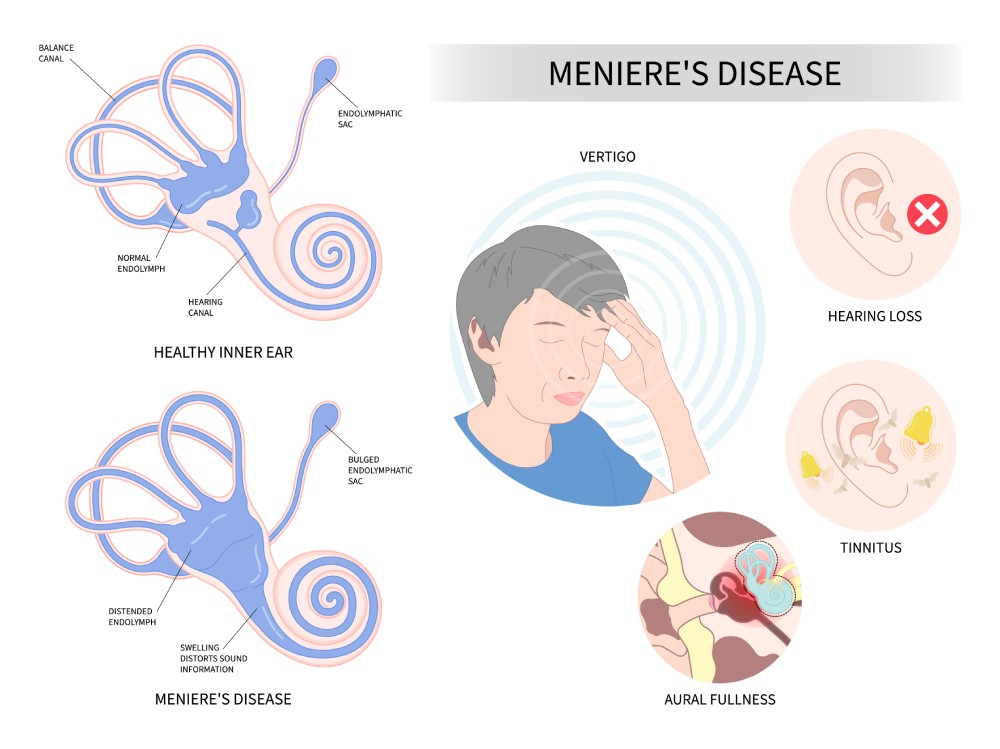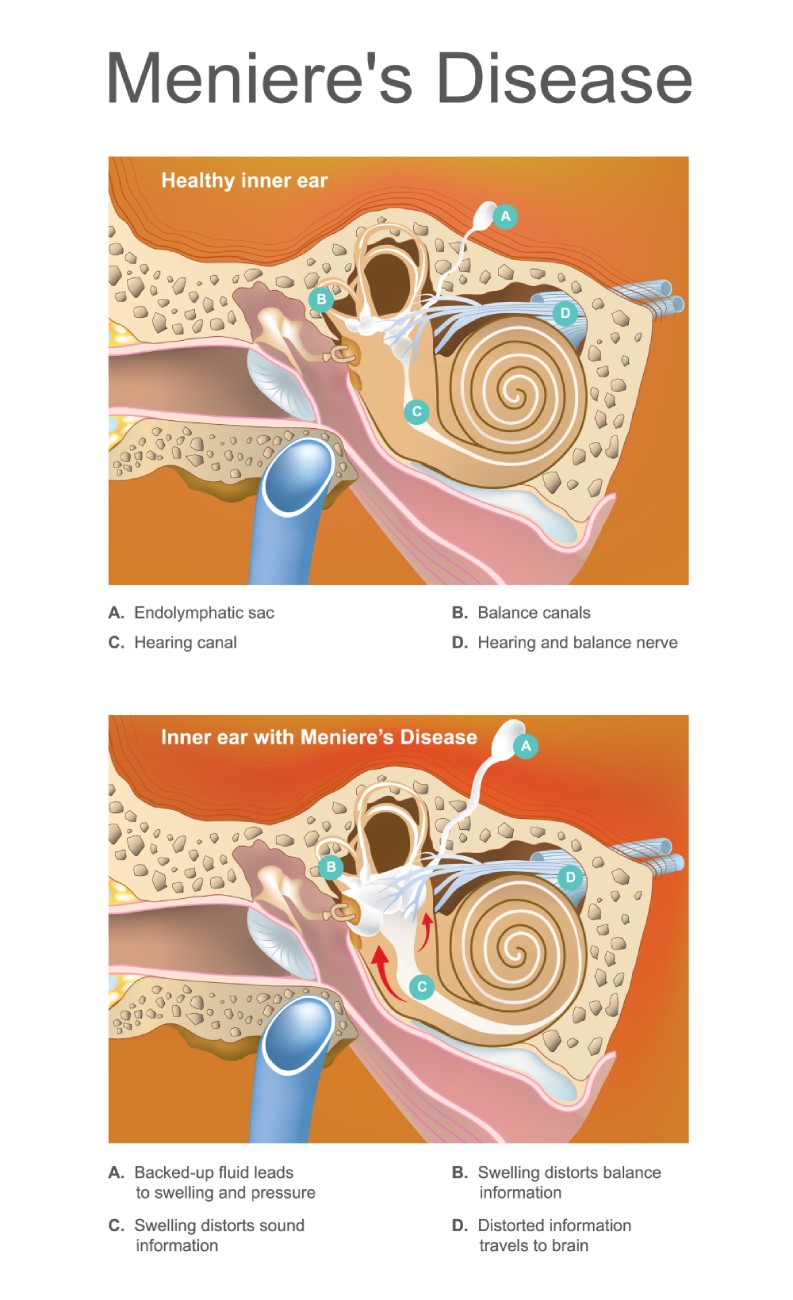Meniere’s Disease Treatment & Support

Understanding Meniere’s Disease
Meniere’s disease is a chronic inner ear disorder that affects balance and hearing. It is characterized by recurring episodes of vertigo, tinnitus (ringing in the ears), hearing loss, and a feeling of fullness or pressure in the ear. These symptoms can be unpredictable and may disrupt daily life, making proper diagnosis and management essential.
Common Symptoms
Meniere’s disease can develop gradually and vary in intensity from person to person. The most common symptoms include:
- Sudden vertigo attacks lasting 20 minutes to several hours
- Hearing loss, often fluctuating in the early stages
- Persistent or intermittent tinnitus
- Ear pressure or a feeling of fullness
- Balance problems or unsteadiness
If left unmanaged, repeated episodes can lead to progressive hearing loss and ongoing balance issues.
Causes and Risk Factors
While the exact cause of Meniere’s disease is not fully understood, it is believed to result from abnormal fluid buildup in the inner ear (endolymphatic hydrops). Contributing factors may include:
- Viral or autoimmune inner ear damage
- Allergies or inflammatory conditions
- Genetic predisposition
- Migraines or vascular issues


Diagnosis
Early and accurate diagnosis is key to effective management. Your healthcare provider may recommend:
- Hearing tests (audiometry)
- Balance assessment (VNG or ENG)
- MRI or CT scans to rule out other conditions
- Blood tests to identify possible underlying causes
Treatment Options
While there is no cure for Meniere’s disease, effective treatments can reduce symptoms and improve quality of life:
1. Lifestyle & Dietary Changes
- Low-sodium diet to reduce fluid retention
- Avoiding caffeine, alcohol, and smoking
- Managing stress and sleep patterns
2. Medications
- Diuretics to reduce fluid buildup
- Anti-vertigo and anti-nausea medications during attacks
3. Therapies
- Vestibular rehabilitation therapy (VRT) for balance improvement
- Hearing aids or cochlear implants for hearing loss
4. Advanced Treatments
- Injections or minimally invasive procedures for persistent vertigo
- Surgery in severe, treatment-resistant cases
Living With Meniere’s Disease
With the right combination of lifestyle adjustments, medical management, and supportive therapies, many people with Meniere’s disease are able to manage symptoms effectively and maintain an active lifestyle. Regular check-ups and a personalized care plan are essential for long-term success.

If you’re experiencing symptoms of Meniere’s disease, early assessment and treatment can make a significant difference. Contact our clinic to book a consultation and start your journey toward better balance and hearing health.
Take Control of Your Balance and Hearing. Don’t let vertigo and tinnitus disrupt your life.
Get Expert Help Today
Meniere’s disease is a rare disorder of the inner ear that causes dizziness, vertigo and balance issues. The condition is usually present in one ear, and often leads to progressive hearing loss in that ear.
A Meniere’s disease episode may be preceded by fullness or aching, hearing fluctuation or tinnitus (ringing/buzzing) in one or both ears. Generally, in the early stages of Meniere’s disease, sudden episodes of vertigo, nausea, vomiting, dizziness, hearing loss, and sound sensitivity may occur. Episodes may last 2-4 hours.
Exhaustion is common after a severe attack, with some people needing to sleep for several hours.
Meniere’s episodes may occur in clusters – several attacks occurring within a short time. Sometimes weeks, months, or years may pass between episodes. Between episodes, most people are free of symptoms or only experience mild imbalance and tinnitus.
During later stages of Meniere’s disease, episodes may become less frequent or stop. However, balance problems, hearing loss and tinnitus may continue.


